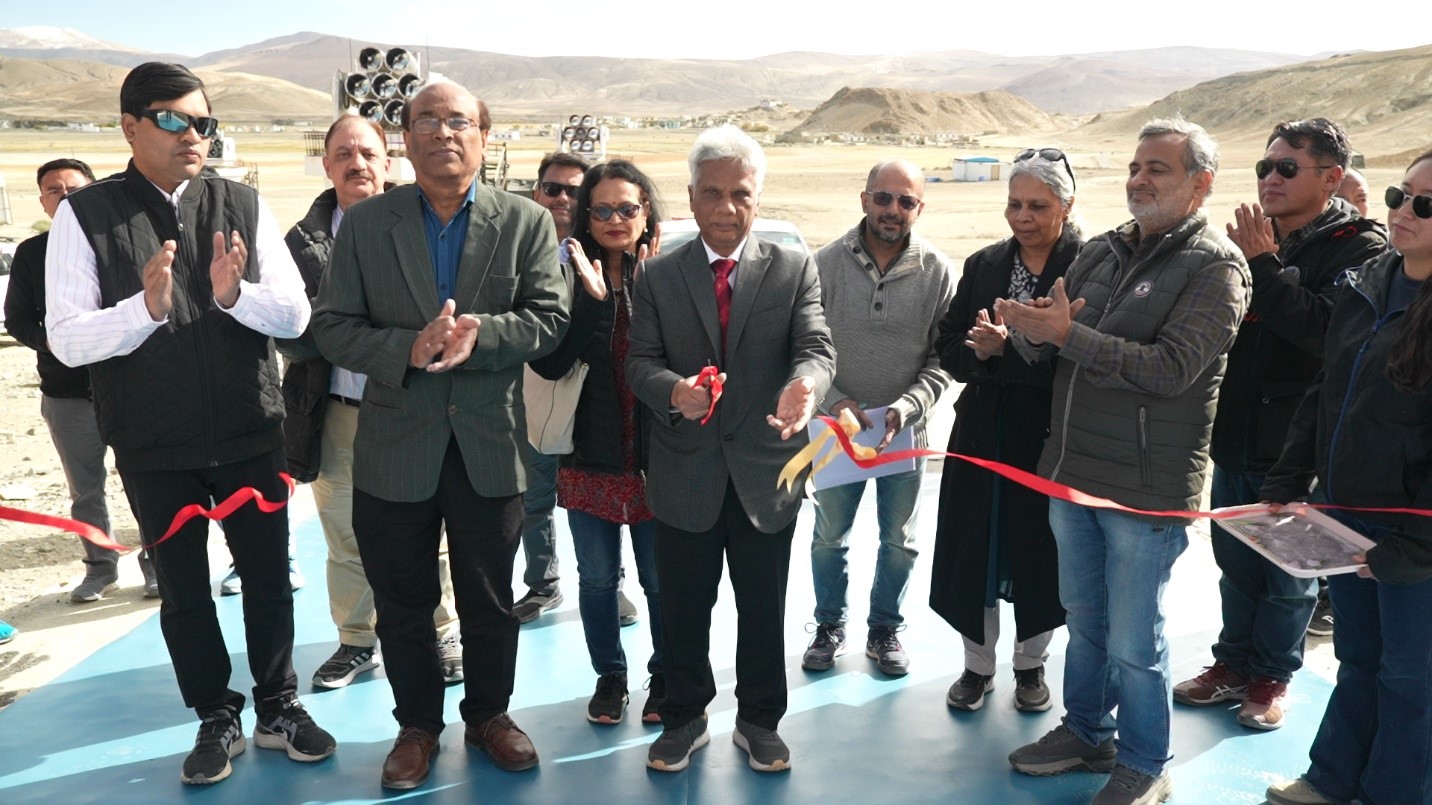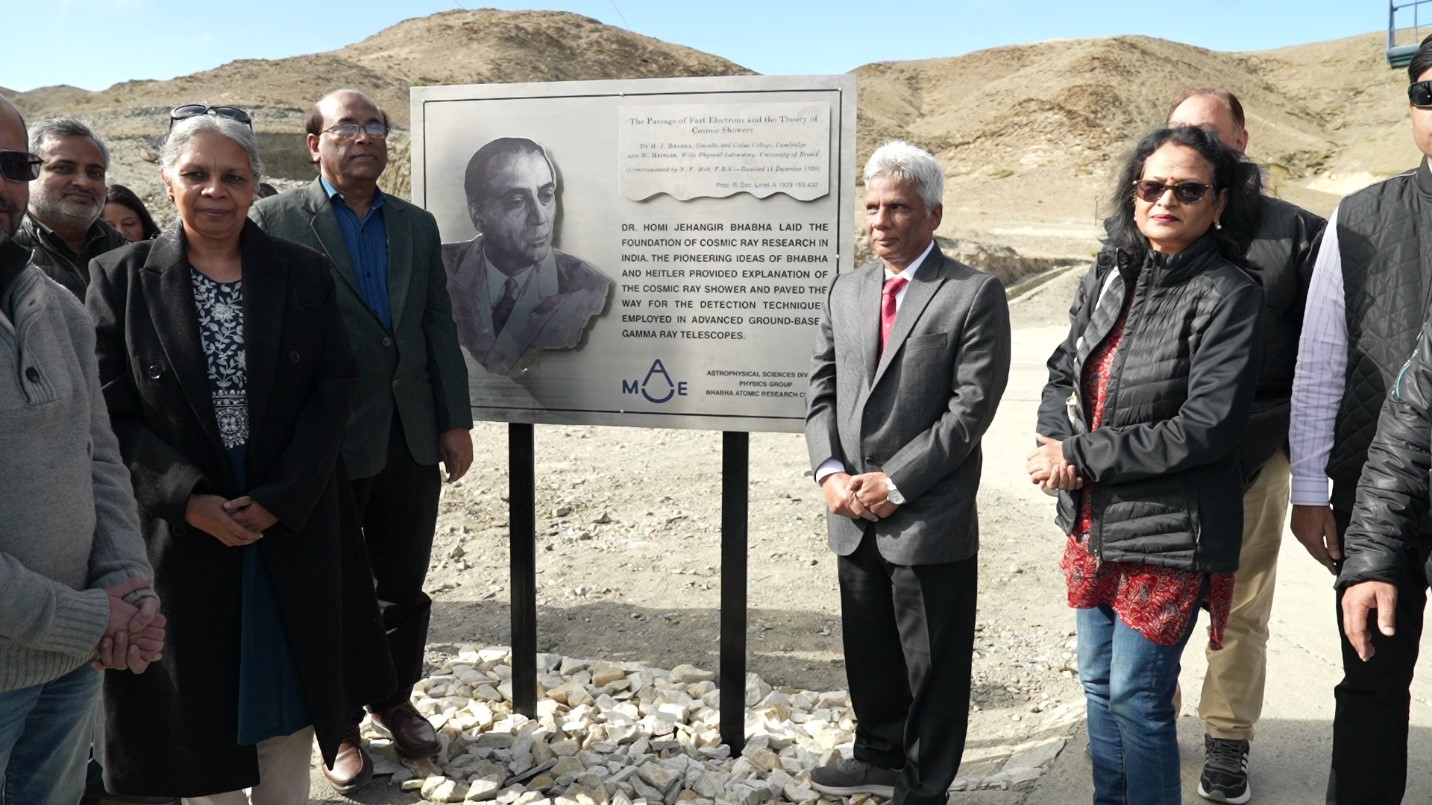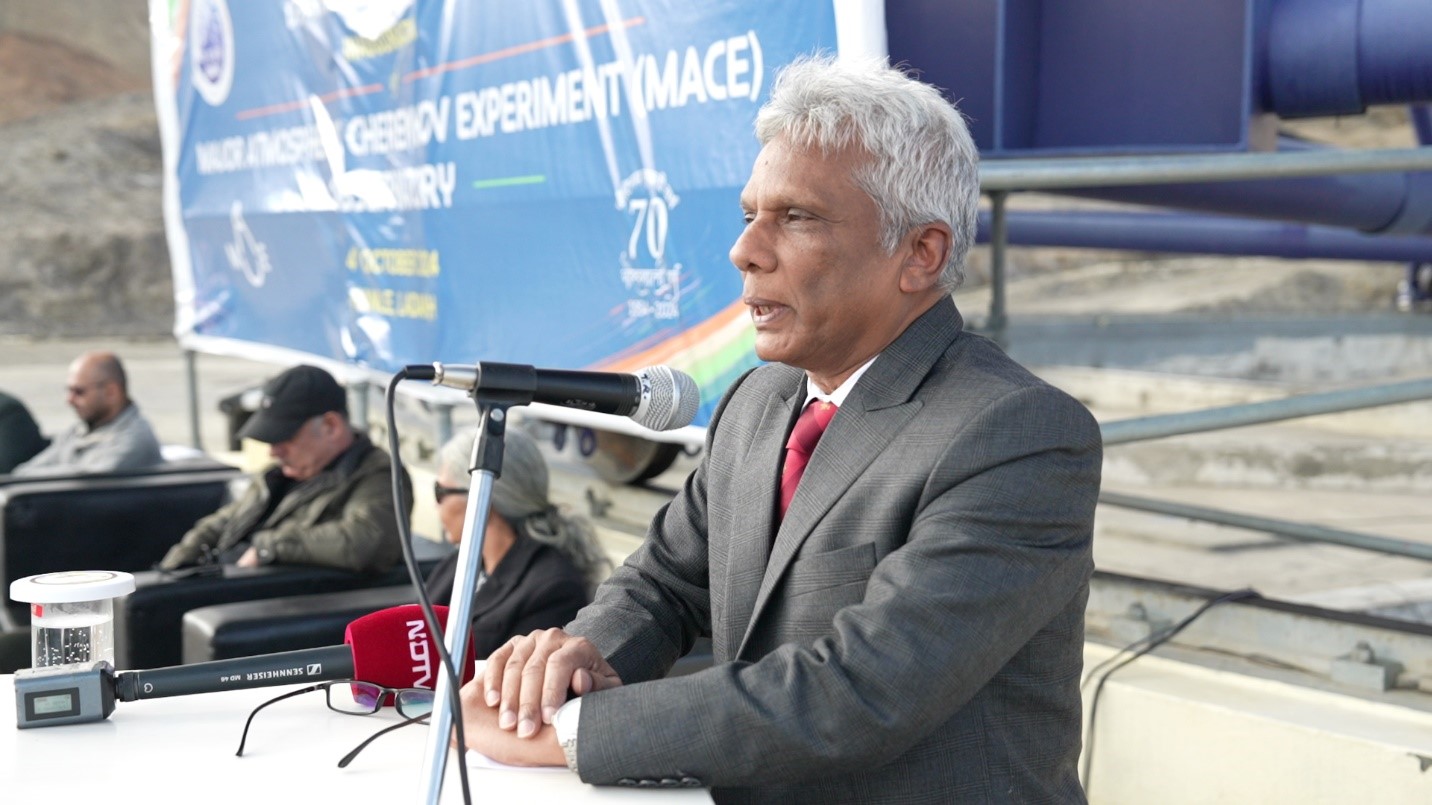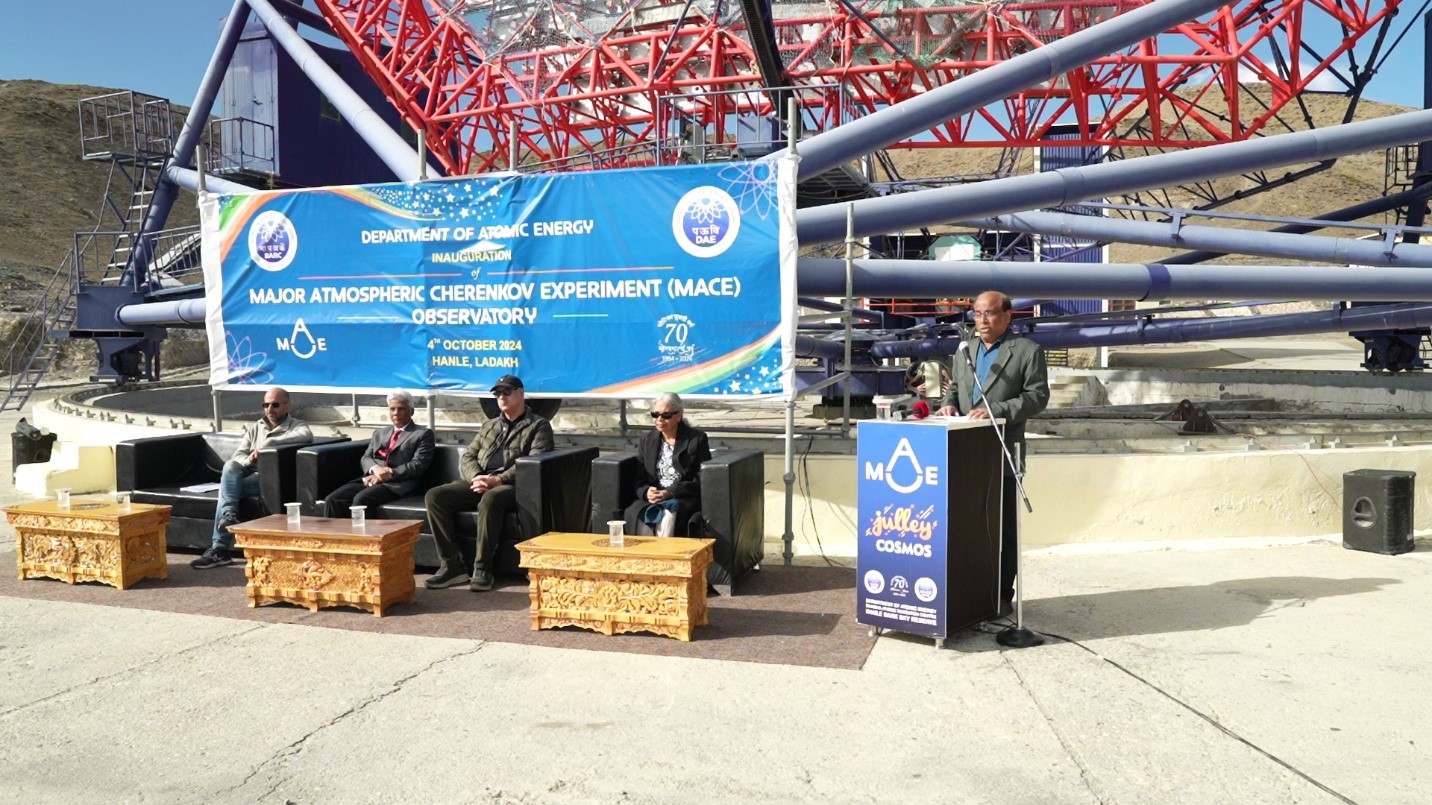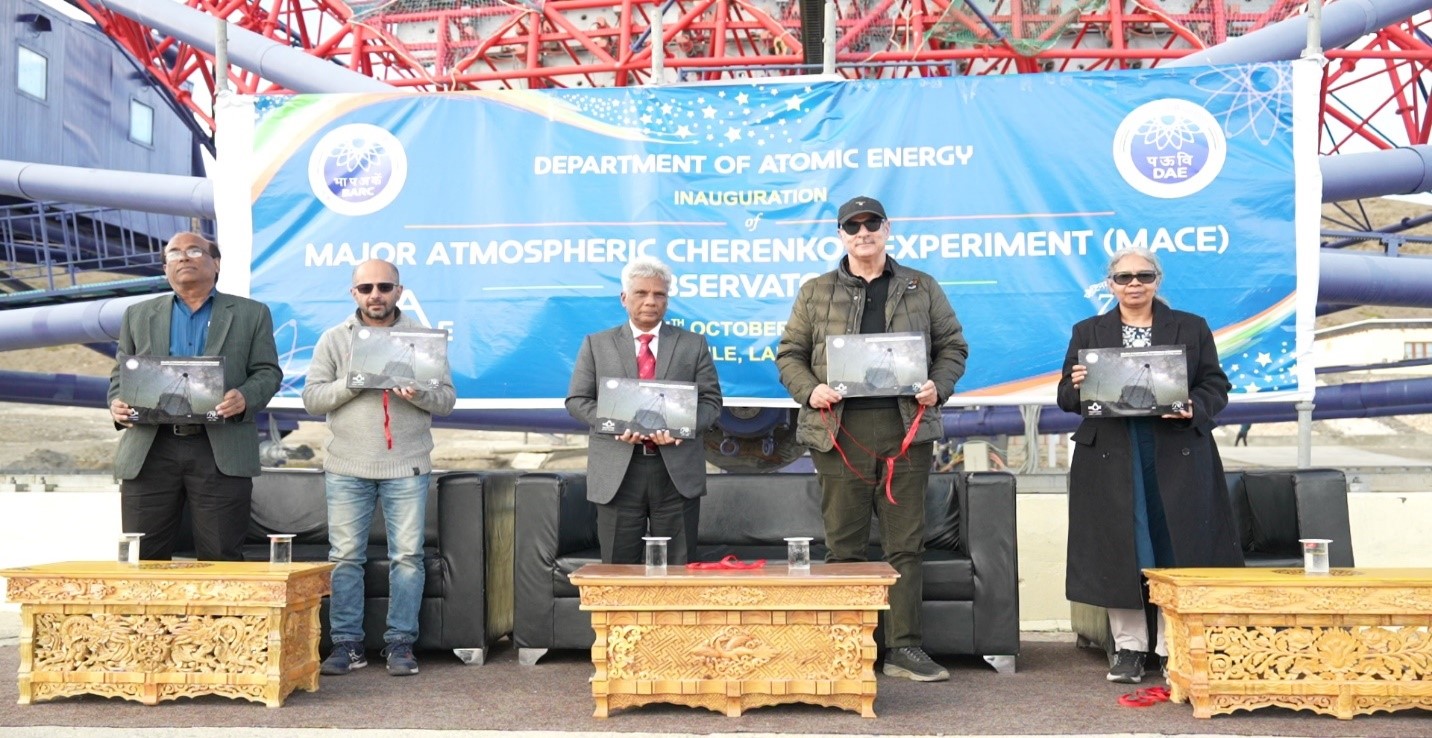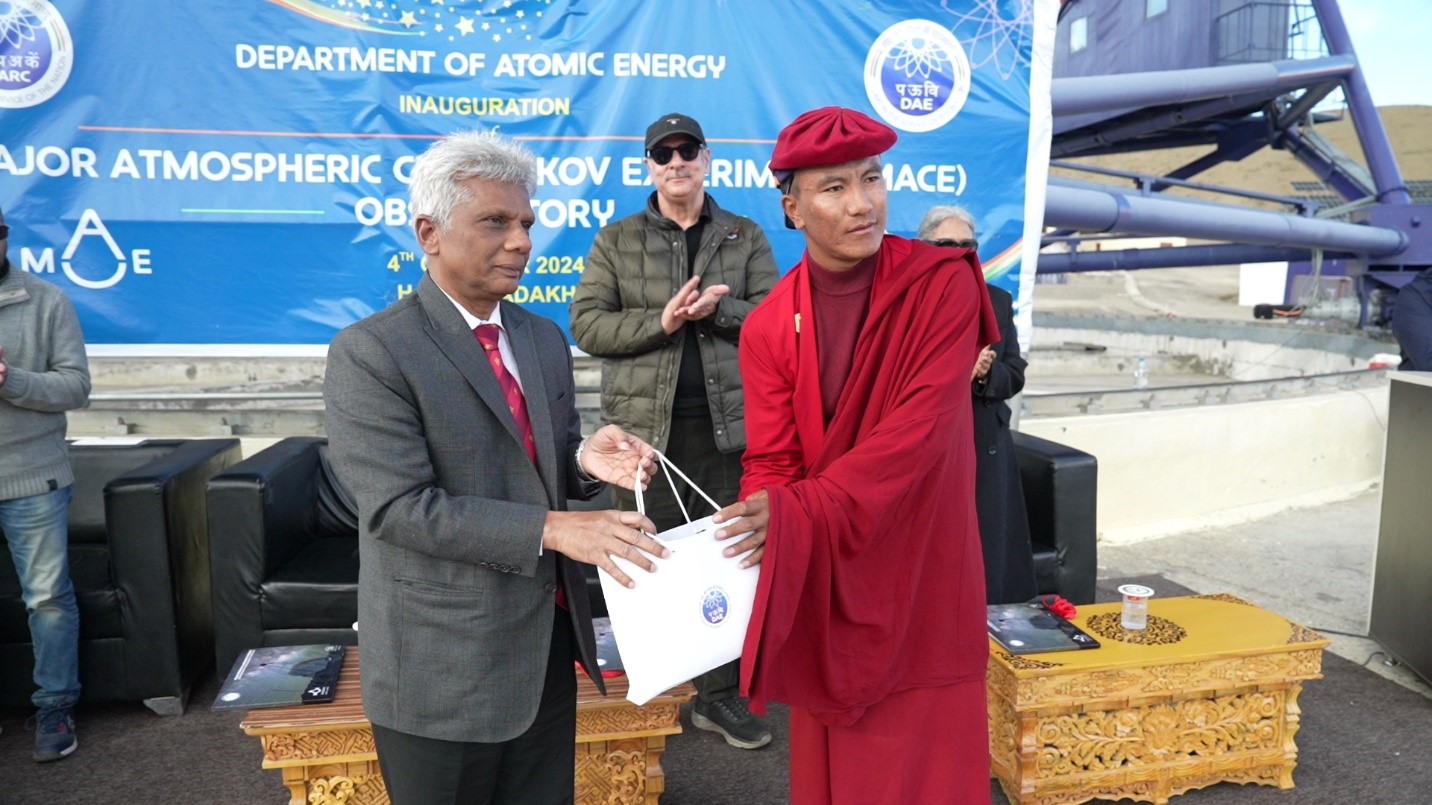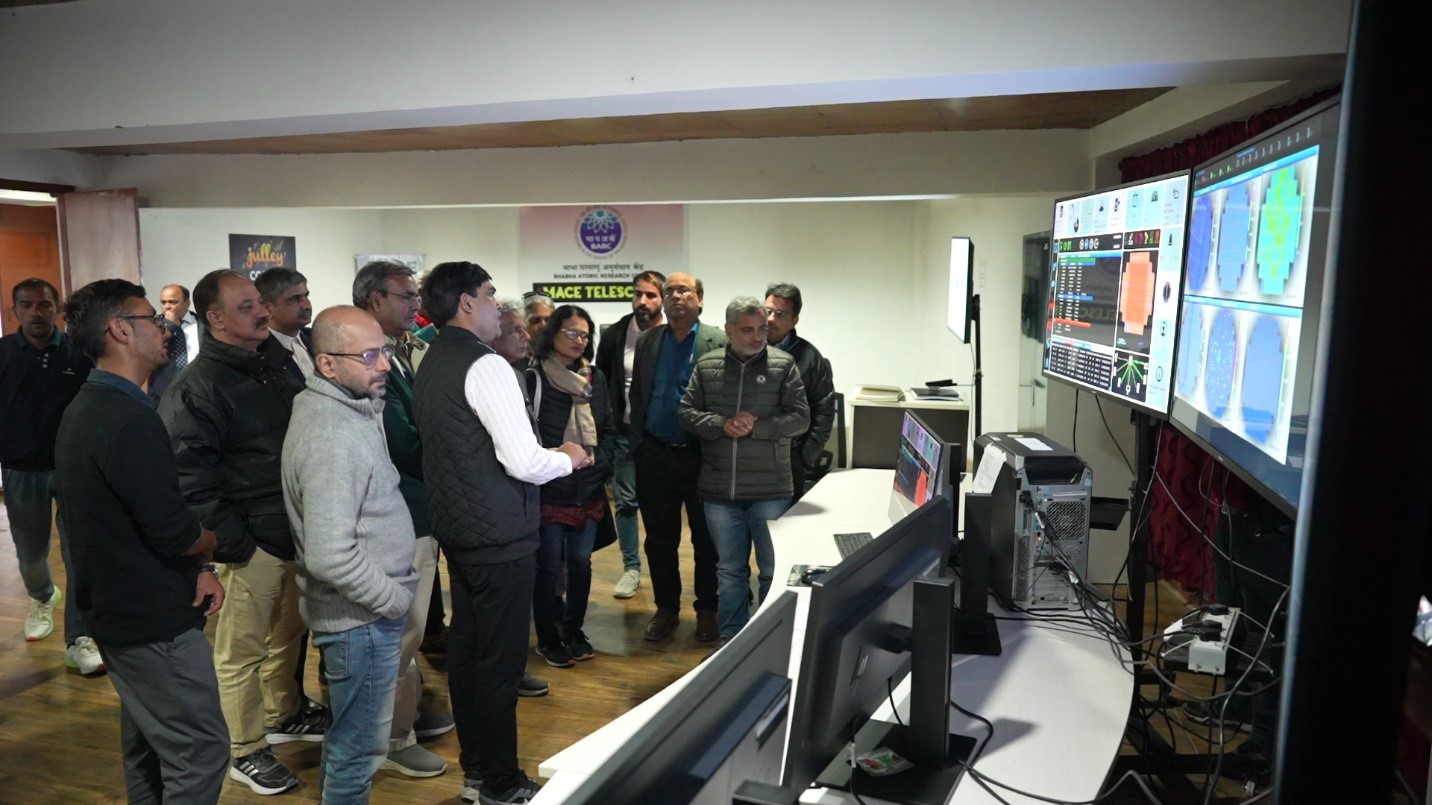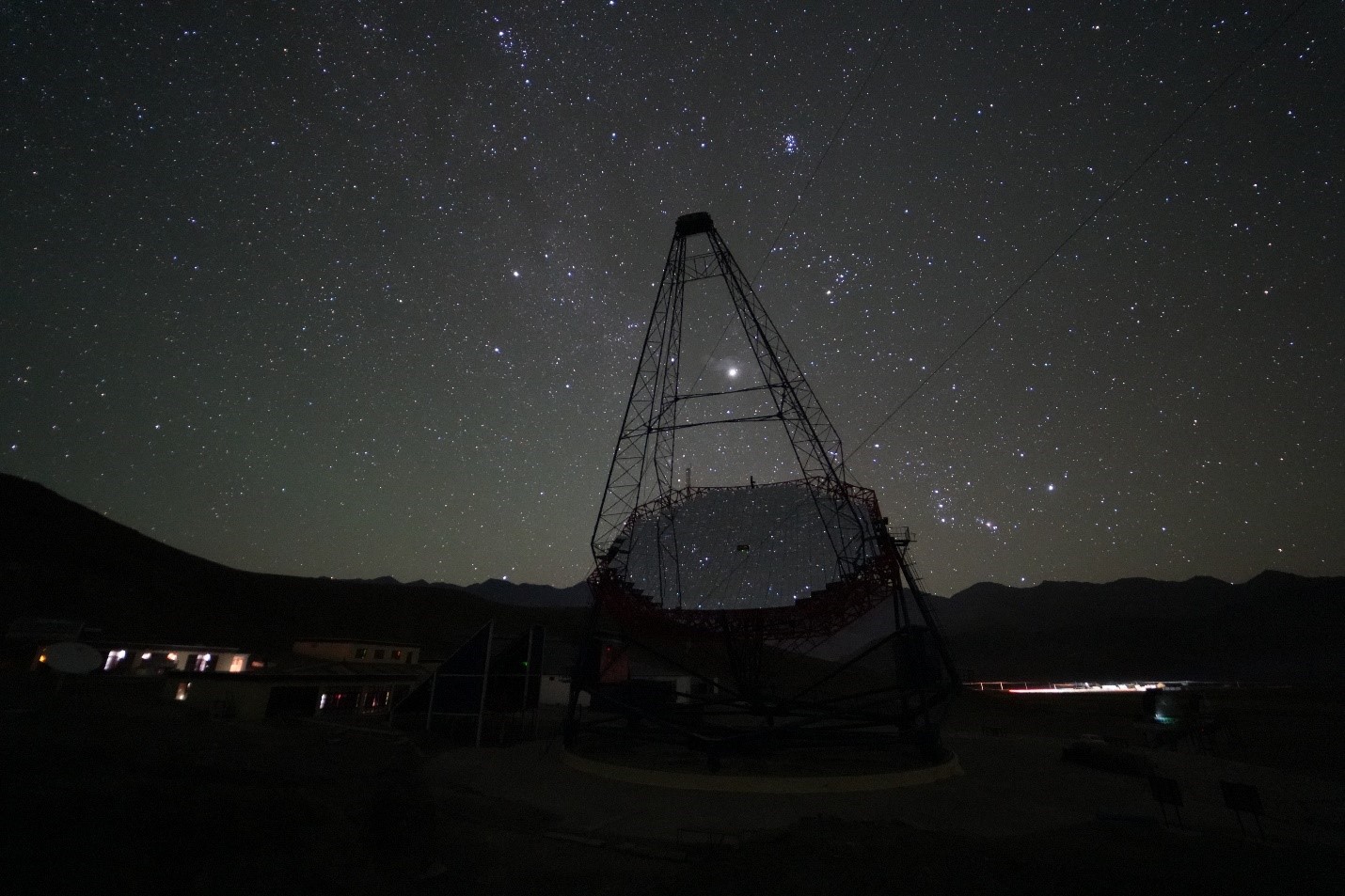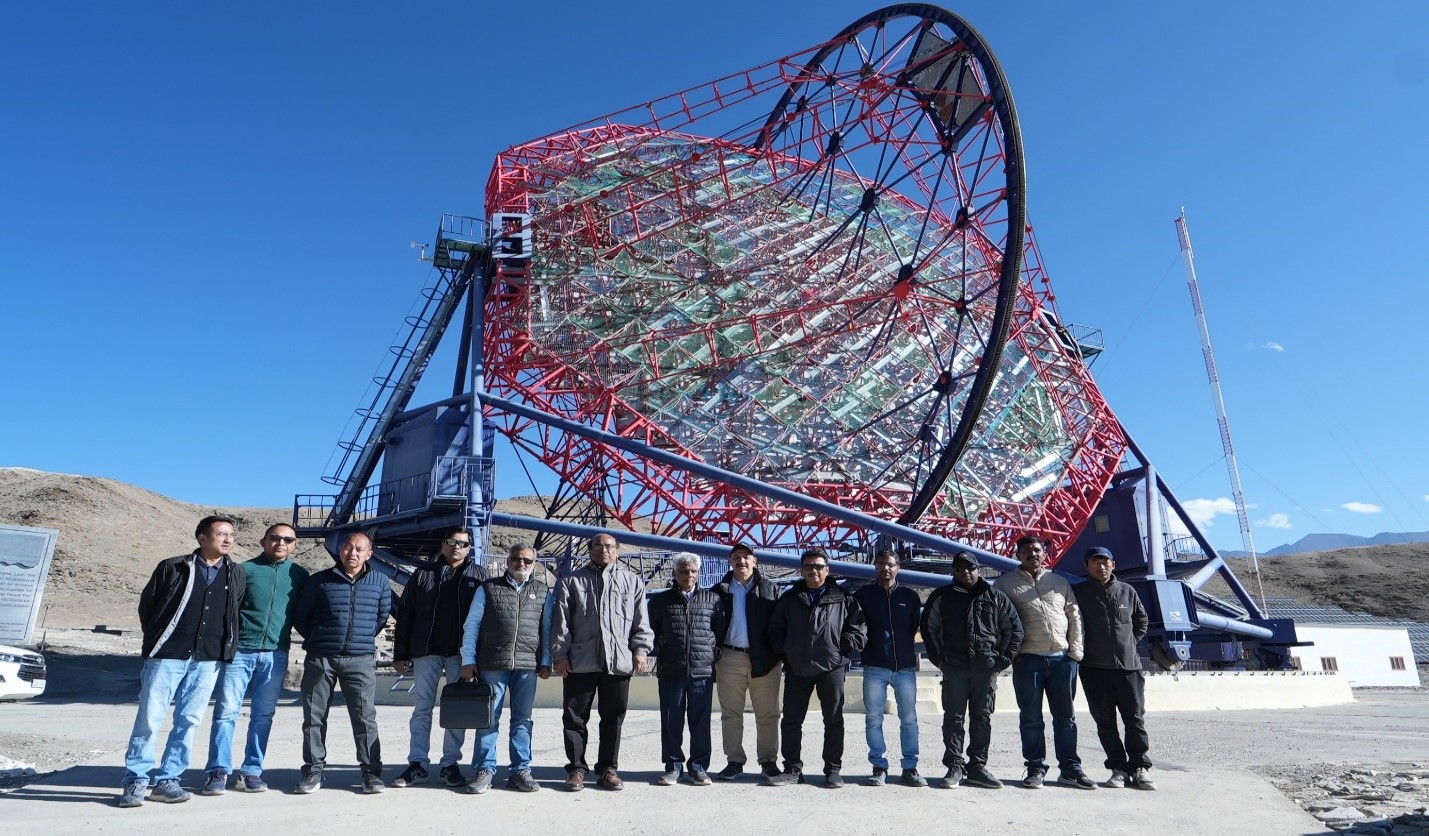Ladakh: The Major Atmospheric Cherenkov Experiment (MACE) Observatory has been inaugurated by Dr Ajit Kumar Mohanty, Secretary DAE & Chairman of the Atomic Energy Commission, at Hanle, Ladakh, on 4th October 2024.
MACE is the largest imaging Cherenkov telescope in Asia. Located at an altitude of ~4,300 m, it is also the highest of its kind in the world. The telescope is indigenously built by BARC with support from ECIL and other Indian industry partners. The inaugural MACE Observatory was a part of the Platinum Jubilee year celebrations of the DAE. The event commenced with the unveiling of commemorative plaques by Dr. Mohanty at the MACE site at Hanle, Ladakh, thereby officially inaugurating the MACE Observatory.
In his inaugural address, DAE Secretary Dr. Mohanty applauded the collective effort that brought the MACE telescope to fruition. He stated that the MACE Observatory is a monumental achievement for India, and it places our nation at the forefront of cosmic-ray research globally. He further added that this telescope will allow us to study high-energy gamma rays, paving the way for a deeper understanding of the universe’s most energetic events. Dr. Mohanty emphasised the significant role that the MACE project plays not only in advancing scientific research but also in supporting the socio-economic development of Ladakh. Students were encouraged to explore careers in astronomy and astrophysics, with Dr. Mohanty expressing hope that the MACE project would inspire future generations of Indian astronomers, scientists, and engineers. Dr Mohanty also paid tribute to India’s pioneering contributions to the field, including the work of Dr Homi J. Bhabha, whose legacy continues to inspire India’s cosmic-ray research.
Secretary DAE & Chairman AEC inaugurates the MACE observatory at Hanle, Ladakh on 4th Oct 2024
Secretary DAE & Chairman AEC unveils the Bhabha Plaque at the MACE site on 4th Oct 2024
Inaugural Address of Dr. Ajit Kumar Mohanty, Secretary, DAE & Chairman, AEC
Shri Ajay Ramesh Sule, Additional Secretary, DAE, stressed the importance of balancing tourism and scientific activities within the Hanle Dark Sky Reserve (HDSR) and encouraged students to pursue careers in science and technology.
Speaking on the occasion, Dr. Annapurni Subramaniam, Director, the Indian Institute of Astrophysics (IIA), highlighted the fruitful collaborative efforts between several constituent Units of DAE and the IIA.
Shri Sajjad Hussain Mufti, Chief Conservator of Forests, UT Ladakh, outlined the key features of the Hanle Dark Sky Reserve and the focus on community engagement. He reaffirmed the UT administration’s unwavering commitment to supporting DAE’s scientific activities.
Dr. S. M. Yusuf, Director, Physics Group, BARC, in his welcome address, emphasized the importance of the MACE telescope in advancing India’s space and cosmic-ray research capabilities. The vote of thanks was delivered by Dr. K. K. Yadav, Head of the Astrophysical Sciences Division of BARC, followed by a visit to the state-of-the-art MACE Control Room. The dignitaries present on the occasion interacted with the team of astronomers and technicians.
Dignitaries on the dais during the inauguration of the MACE observatory on 4th Oct 2024
(Left to Right: Shri A. R. Sule, Additional Secretary, DAE; Dr A. K. Mohanty, Secretary, DAE & Chairman, AEC; Shri Hussain Mufti, Chief Conservator of Forests, UT of Ladakh; Prof. Annapurni Subramaniam, Director, IIA; Dr S. M. Yusuf, Director, Physics Group, BARC)
A pictorial compilation documenting the journey of the MACE project was also released on the occasion. Dr. Mohanty felicitated the representatives of the Nambardars (village leaders), the school headmaster, and the venerable Lama of the Handle Gompa.
Release of Special Pictorial Compilation during the event
A special film on the MACE telescope was screened, showcasing the scientific and technological advancements made during the project. The day concluded with a guided tour of the MACE Observatory, giving attendees an exclusive look at the world-class observatory that establishes India on the global advanced astronomy map.
The inauguration of the MACE telescope marks a significant step forward for Indian astrophysics and cosmic-ray research. Situated at an altitude of ~4,300 m, the MACE telescope will observe high-energy gamma rays, contributing to global efforts to understand the most energetic phenomena in the universe, such as supernovae, black holes, and gamma-ray bursts. This facility will also complement global observatories, strengthening India’s position in the field of multi-messenger astronomy.
Looking ahead, the MACE project aims to foster international collaborations, advancing India’s contributions to space research and bolstering India’s position in the global scientific community. The observatory will also serve as a beacon of inspiration for future generations of Indian scientists, encouraging them to explore new frontiers in astrophysics.
Felicitation of the Community Representatives during the event
Visit of the Dignitaries to the MACE Control Room
Night time observations using the MACE Telescope
Secretary DAE & Chairman AEC with the Team of Physics Group, BARC at the MACEE site on 5th Oct 2024


